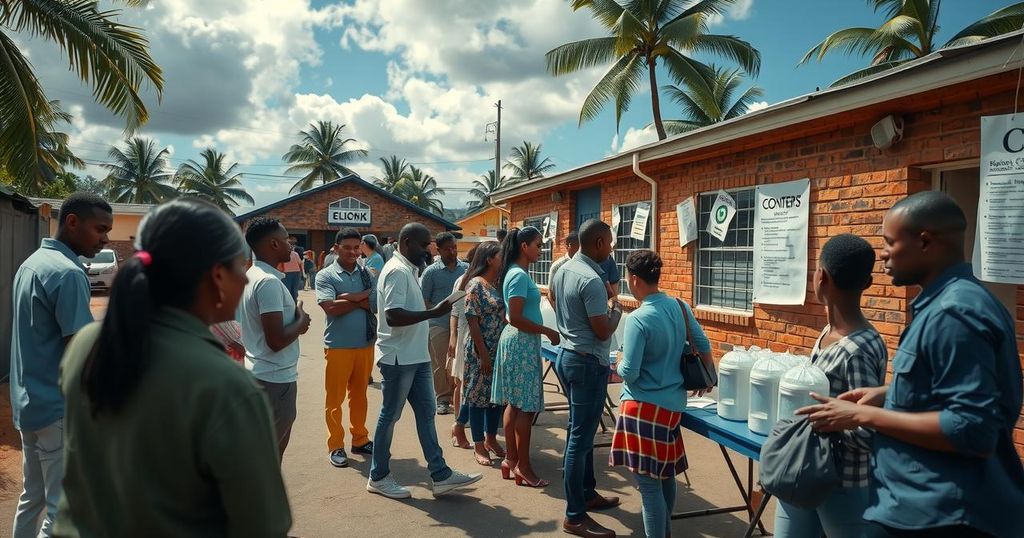Mauritius Elections: A Contest Marked by Scandal and Seeking Stability

Mauritius held a parliamentary election amidst a phone-tapping scandal, with voter turnout reaching 70%. Incumbent PM Pravind Jugnauth faces opposition from Navin Ramgoolam’s Alliance of Change. Concerns over governance and civil liberties have surfaced, complicating the political landscape against a backdrop of recent improvements in relationships concerning the Chagos Islands.
Mauritius conducted a parliamentary election on Sunday under a cloud of controversy, primarily stemming from a phone-tapping scandal that implicated public figures, including politicians and journalists. This election, which is pivotal for ensuring economic and political stability in the African island nation, came shortly after a significant agreement was reached with Britain regarding the sovereignty of the Chagos Islands. Despite the Prime Minister Pravind Jugnauth’s expectations for an easy re-election supported by this agreement, leaked phone recordings disrupted the political landscape, prompting the government to impose a social media ban aimed at managing the fallout, a measure subsequently retracted due to public backlash. The election features two principal political factions: Jugnauth’s Militant Socialist Movement and the opposition Alliance of Change, led by former prime minister Navin Ramgoolam. Both factions campaigned vigorously, promising to address poverty and declining living costs. Early voter turnout stood at 70 percent, indicative of the electorate’s engagement. While police ensured a secure voting environment, the election has raised concerns regarding institutional integrity and the erosion of civil liberties in the country. Mauritius, a primarily Hindu nation with a population of 1.3 million, has historically enjoyed political and economic stability since its independence in 1968, supported by its thriving tourism and financial services sectors. However, the past five years have seen mounting discontent regarding governance standards, raising alarms about corruption amid a backdrop of procurement scandals linked to the COVID-19 pandemic. As the country seeks to diversify its economy, the political environment continues to become increasingly fraught with allegations of governmental misconduct, positioning this election as a crucial moment for the future of Mauritius’ democracy.
Mauritius is recognized as a stable democracy and one of Africa’s most prosperous nations, having sustained considerable economic growth since its independence. Recent developments, particularly regarding the Chagos Islands and ongoing political controversies, have galvanized public opinion and raised significant questions about governance. The nation’s political landscape has remained largely dominated by a few powerful families, creating an environment where corruption and nepotism allegations persist. Amidst these tensions, civil liberties appear to be under threat, illustrated by the government’s attempts to control the narrative surrounding election-related scandals. The current electoral climate is therefore a defining moment that could influence the direction of the nation’s democracy and economic viability.
In summary, the recent parliamentary election in Mauritius is characterized by political tension exacerbated by a phone-tapping scandal, highlighting the fragile nature of the nation’s democracy. While the outcome remains uncertain, the electorate’s concerns regarding governance, economic stability, and civil liberties must be addressed by the incoming administration. As the nation looks to the results, the political ramifications could potentially reshape the future of Mauritius in the context of both regional dynamics and internal governance challenges.
Original Source: www.news-expressky.com






